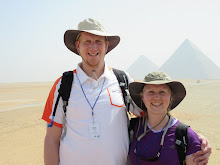The king bows to his people.
That can't be right. There must be some confusion; this sounds a bit backwards.
The king bows to his people.
Monarchies are mostly a thing of the past, but one thing most of all know is that kings don't bow to their people -- the people bow to their king...
Last week I shared some thoughts about sandals, camel crap, and how Jesus humbly washed his disciples feet – a filthy job for the King of Kings.
I want to
continue along this path of reflection and consider even further about how Jesus humbly “lowered”
himself to humanity, when the Prince of Peace could have been sitting on his
throne.That can't be right. There must be some confusion; this sounds a bit backwards.
The king bows to his people.
Monarchies are mostly a thing of the past, but one thing most of all know is that kings don't bow to their people -- the people bow to their king...
Last week I shared some thoughts about sandals, camel crap, and how Jesus humbly washed his disciples feet – a filthy job for the King of Kings.
In the Bible we encounter the word “praise” hundreds of times. The word Hallel (like HALLELUJAH!) is one word used for “praise”, and it literally means to “shine forth.” Meaning #2 of “praise” is the word YUDAH (or “Judah”) which directly translated means, “to point out.” Yudah = “THAT’s my God!”
"Bless," or Baruch, means "bend the knee."
But it's the third meaning of the
word I want to address, which directly brings us back to Jesus washing his
disciples’ feet:
The third meaning of praise, Baruch, essentially means “Bless!” “Bless the Lord” is a phrase often seen over
and over in the Psalms.But the word “bless” also has a deeper meaning. Directly translated, bless, or baruch, means “bend the knee.” For most of us, bending the knee conjures up images of bending to bow to a king. And why do people bow? People bow and lower themselves to make the king look big; the people shrink and the king is exalted.
We baruch, bending our knees before God, and so bless God to show that God is bigger, greater than us. We bend our knees to lift up our great God and acknowledge this King of Kings belongs on the throne.
But now let’s
go back to what we thought about last week about Jesus washing the disciples’
feet. Here Jesus, the Prince of Peace,
bends his knee to serve the low class
citizens, doing an even lower-class duty.
The God of the universe takes a position on his knees to raise us up and increase our worth.
God became
small to make us big.
And this
simple act of servanthood and baruch-ing
pales in comparison to what Jesus will do next.
After the footwashing, Jesus begins his journey to the cross, where he
suffers humiliation, rejection, and unimaginable pain -- only a crown of thorns for this king. And Jesus makes himself so small, that he
lowers himself all the way to the grave.
The King of Kings’ knees bends so far down that he dies bearing the
weight of the sin of the world.
God became small to make us big.
And he does
it for us. He died so that we have a chance to be
raised up with him, to be lifted up, to have eternal life in him. God saw how sin weighed us down, keeping us
apart from him, so he sent his only Son Jesus to lower himself so deeply, so
that we could be raised up and be reunited with him.
God became
small to make us big.
The King
himself baruch-ed to wash our feet.
The Prince
of Peace bends his knee to give us eternal peace.
The next
time you hear the word “bless,” picture our King Jesus meekly bending his knee as he
washes the disciples feet, and let that image burn into our hearts, never
forgetting how truly “blessed” we are to have such a humble king.
“The servant grew
up before God—a scrawny seedling,
a scrubby plant in a parched field…
He was looked down on and passed over,
a man who suffered, who knew pain firsthand.
One look at him and people turned away.
We looked down on him, thought he was scum.
But the fact is, it was our pains he carried—
our disfigurements, all the things wrong with us…
But it was our sins that did that to him,
that ripped and tore and crushed him—our sins!
He took the punishment, and that made us whole.
Through his bruises we get healed.”
a scrubby plant in a parched field…
He was looked down on and passed over,
a man who suffered, who knew pain firsthand.
One look at him and people turned away.
We looked down on him, thought he was scum.
But the fact is, it was our pains he carried—
our disfigurements, all the things wrong with us…
But it was our sins that did that to him,
that ripped and tore and crushed him—our sins!
He took the punishment, and that made us whole.
Through his bruises we get healed.”
~excerpts from Isaiah 53, The Message







